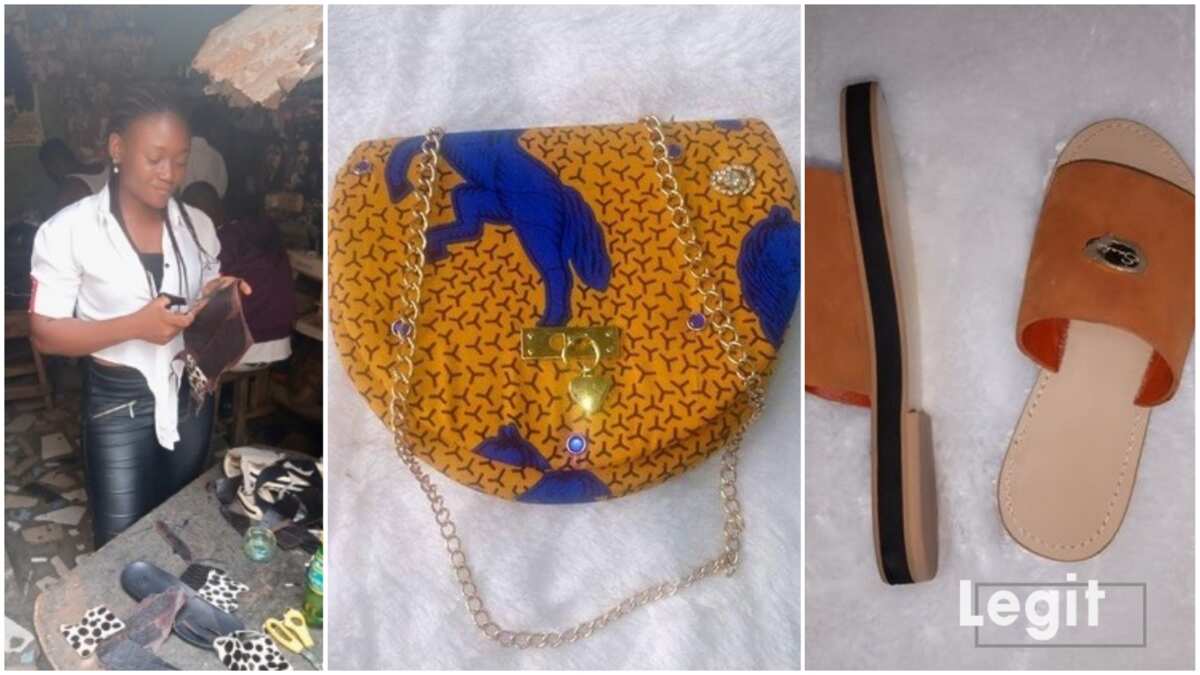Women are indeed taking charge of their lives and carving a niche for themselves in the process. This is clearly reflected in the life of this young Nigerian lady who despite being a graduate, has found as a cobbler.
Identified as Ukaha Ezinne, the 26-year-old lady isn't like your average Nigerian babe. Rather than sit around and complain about lack of employment after NYSC like most people do, this smart young lady picked up an entrepreneurship skill as a shoe cobbler.
Speaking exclusively with Legit.ng, the Abia born who resides in Lagos, revealed she is a graduate of Theatre arts from Kogi state university.
READ ALSO: Personal letter from the Editor-in-Chief of Legit.ng (former NAIJ.com)

Ukaha Ezinne believes what a man can do, a woman can do better
Source: Original
Ezinne revealed that after her service year in Akwa Ibom in 2015, she found it difficult to get a job despite attending several interviews. Following series of disappointments, she decided to pick up a skill.

After series of job interviews without a call back, Ezinne decided to pick up a skill
Source: Original
PAY ATTENTION: Get the Latest Nigerian News on Legit.ng News App
In her words: "I learnt shoe/bag making, I have always believed that what a man can do, a woman can do it better"

Ezinne not only makes shoes but bags as well
Source: Original
Get the hottest gist on Africa Love Aid
Ezinne revealed that she has been in this business for close to two years now. She has proven to other ladies out there that with determination and passion, almost anything is achievable.
In a similar news, an exceptionally talented young lady Onyinye Edith Chima, who is a graduate of English and Literary Studies from the Ekiti state University, prides herself in making uniquely different footwears for both men and women.
HELLO! NAIJ.com (naija.ng) upgrades to Legit.ng We keep evolving to serve our readers better
How I make over 100k monthly - graduate shoemaker. Legit TV
Source: Legit.ng
from Nigeria News today & Breaking Naija news ▷ Read on Legit.ng 24/7 https://ift.tt/2TqU9HQ
via EDUPEDIA24/7
Comments
Post a Comment